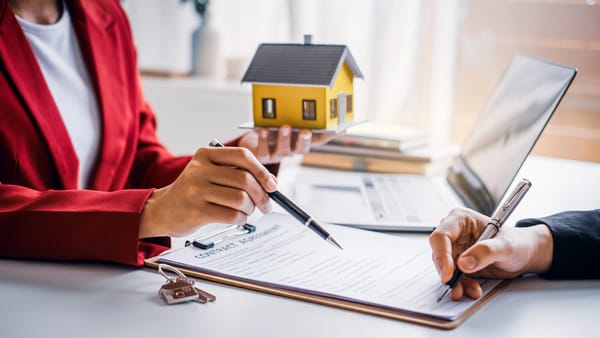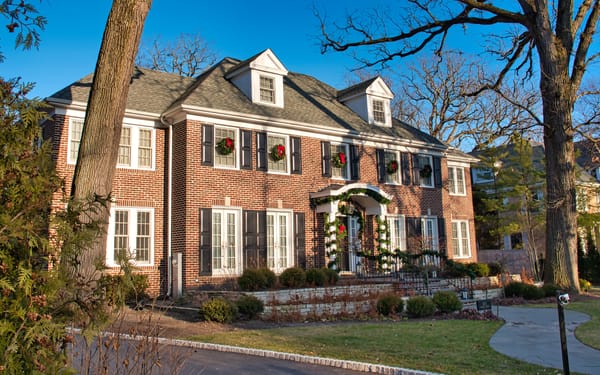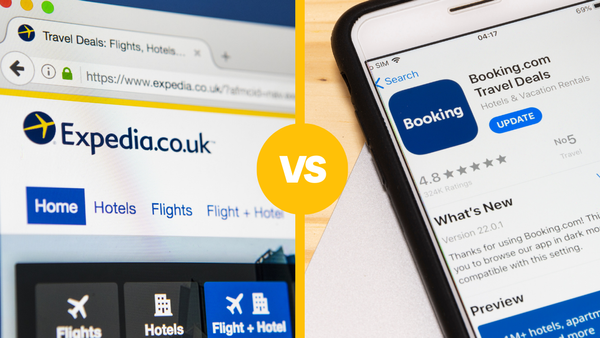The Right Way to Set Up Airbnb Security Cameras
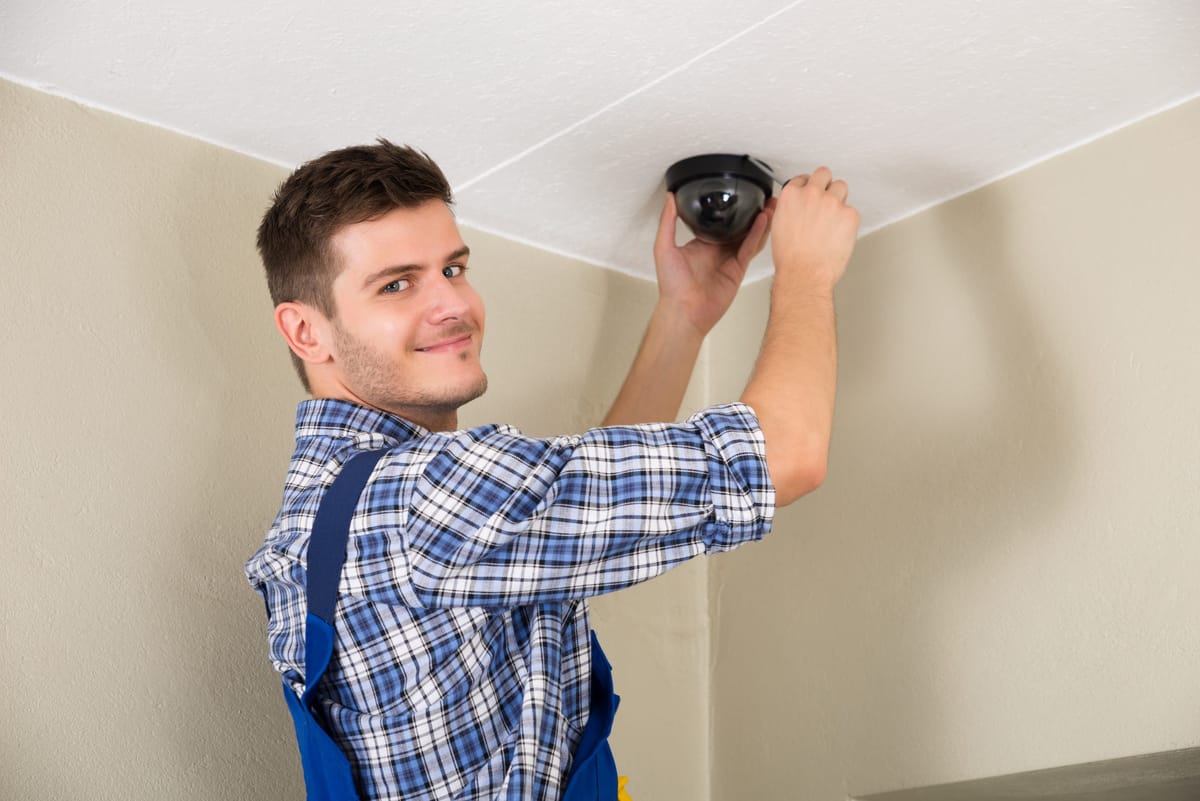
The thought of finding undisclosed cameras in your vacation rental understandably wouldn’t sit well with most people. There’s somewhat of a push and pull between hosts and guests, one wanting to protect their investment and the other wanting peace of mind that they won’t be recorded unknowingly on their holiday.
But while the presence of cameras inside sounds like a good crime deterrent, it’s a reasonable expectation that any kind of video surveillance should be installed in a visible manner and disclosed in the listing. You cannot have hidden cameras in your listing. Even if you intend them as security and surveillance cameras, they are still prohibited.
We’ll be answering a few common questions surrounding the monitoring of guests in vacation rentals – surveillance cameras specifically – how to ensure a person’s privacy while still looking out for your rental space, and what kind of security measures are permitted exactly.
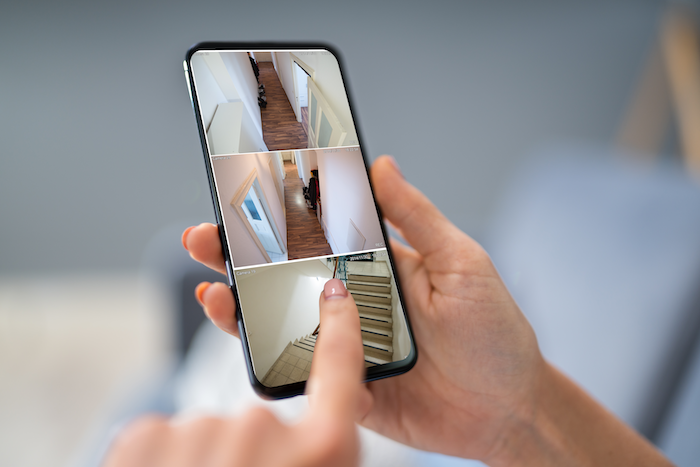
How Do Guests Feel About Airbnb Cameras?
The use of surveillance cameras in vacation rental properties, such as those listed on Airbnb, has become a topic of debate in recent years. Some argue that cameras provide an added layer of security for both the guests and the property owner, while others argue that they invade privacy and make guests feel uncomfortable.
According to a survey conducted by the vacation rental website, HomeAway, 70% of guests said they would be comfortable staying in a property with cameras as long as they were properly disclosed and positioned in common areas such as living rooms and hallways. However, the same survey found that only 20% of guests said they would be comfortable with cameras in bedrooms or bathrooms.
Airbnb has recognized this issue and has implemented guidelines for hosts who choose to use cameras. The company requires hosts to disclose the presence of cameras to guests before they book the property and to position cameras only in common areas. Additionally, hosts are prohibited from recording guests in bedrooms or bathrooms.
Despite these guidelines, some guests may still feel uncomfortable with the presence of cameras in vacation rental properties. For these guests, it may be best to look for properties that do not have cameras or to speak directly with the host to ensure that all of their concerns are addressed.
Overall, the use of cameras in rental properties can provide an added layer of security for both guests and property owners. However, it is important for hosts to disclose the presence of cameras to guests and to position them only in common areas to ensure that guests’ privacy is respected.
What Is Airbnb’s Policy Regarding Cameras and Camera Lenses?
Airbnb has a strict policy in place regarding the use of security cameras in private spaces and vacation rental properties generally. According to the company’s guidelines, hosts must disclose the presence of cameras to guests before they book the property, and cameras can be placed in only public spaces such as living rooms and hallways. The use of cameras in bedrooms or bathrooms is strictly prohibited.
Airbnb hosts must also adhere to local laws and regulations regarding the use of surveillance cameras. In some jurisdictions, it may be required to obtain consent from guests before installing cameras or posting signs informing guests that they are being recorded.
Additionally, Airbnb hosts are required to ensure that the cameras they use are in good working condition and that they have the right to use them. They should also ensure that the footage is not shared or used for any other purpose than for the safety and security of the property.
They also reserve the right to deactivate or remove listings that do not comply with their camera policy. This is to ensure that the privacy and comfort of guests are respected and to maintain the trust of the community.
Airbnb’s policy on security cameras is designed to balance the needs of guests for privacy and security with the needs of hosts to protect their properties. Hosts must disclose the presence of cameras to guests and follow local laws and regulations, while also making sure to respect the privacy of guests.
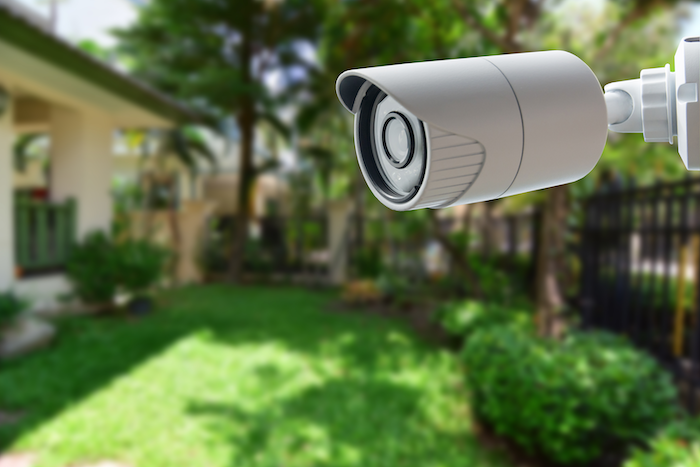
What about Airbnb security cameras found in backyards, fences, alleys, or locked-off areas of a rental?
Airbnb’s policy regarding surveillance cameras in outdoor areas, such as backyards, fences, alleys, or locked-off areas of a rental, is similar to their policy for indoor areas. Hosts must disclose the presence of cameras in these areas before a guest books the property and the cameras can only be placed in common areas. The use of cameras in private outdoor spaces, such as backyards or alleys, is also prohibited. Additionally, hosts must ensure that the cameras are positioned in such a way that they do not capture any footage of neighboring properties or public spaces.
It’s important to note that local laws and regulations may vary when it comes to the use of security cameras in outdoor spaces. Property owners and hosts should familiarize themselves with these laws and ensure they are in compliance before opting to install cameras on their properties. Additionally, it’s always advisable to let guests know where the cameras are located and what is being captured so that guests can make informed decisions about their privacy.
Are Listings Reliable?
The reliability of listings in terms of disclosing security cameras can also vary. As mentioned earlier, Airbnb has a strict policy in place requiring hosts to disclose the presence of cameras to guests before they book the property. However, not all hosts may adhere to this policy.
There have been instances where guests have reported finding hidden cameras in rental properties, which can be a violation of Airbnb’s policy and a violation of guests’ privacy. While Airbnb takes steps to ensure that hosts comply with their camera policy, it’s not possible for them to catch every violation.
To ensure that a listing is reliable in terms of disclosing cameras, guests can take a number of steps such as checking the listing description for any mention of cameras, asking the host directly about the presence of cameras, and checking for any reviews that mention cameras. Additionally, guests can check if the listing is compliant with local laws regarding the use of cameras.
It’s important for guests to be vigilant and aware that some hosts may not disclose the presence of cameras or may have cameras in prohibited areas. By taking the steps mentioned above, guests can better ensure that they are aware of the presence of cameras in a rental property and can make an informed decision about their privacy before booking.
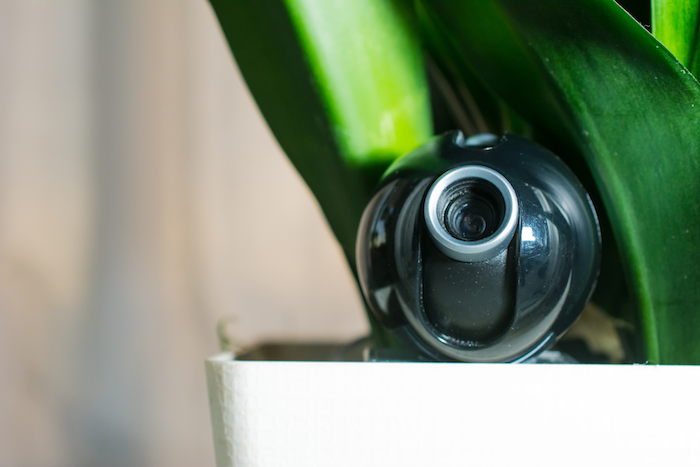
How Can You Find Out If Your Airbnb Has Cameras?
There are a few ways to find out if your Airbnb rental has cameras:
- Check the listing description: Before booking a property, read the listing description carefully. Hosts are required by Airbnb to disclose the presence of cameras in their listing description.
- Ask the host directly: If you’re unsure about the presence of cameras, you can reach out to the host and ask them directly. They are required by Airbnb to be transparent about the presence of cameras and should be able to answer any questions you may have.
- Check for reviews mentioning cameras: Look for reviews from previous guests that mention cameras. This can give you an idea of what to expect and whether or not the host is compliant with Airbnb’s camera policy.
- Check the listing images: Some hosts might include images of their cameras in the listing, if so, you can see where they are located and decide if you are comfortable with them.
- After arrival, check the property: Look for any signs of cameras, such as small lenses or blinking lights. If you find any cameras that have not been disclosed by the host, you should contact the host immediately and bring this to their attention.
It’s worth noting that, according to Airbnb’s policy, cameras are only allowed in common areas, such as living rooms, hallways, and outdoor spaces, they are not allowed in bedrooms, bathrooms, or private outdoor spaces without proper disclosure and consent.
Airbnb Security System: Smart Home Security Devices for Hosts
While security cameras can provide an added layer of security for rental properties, they may not be the only solution for hosts. There are a number of smart home security devices that can be used as an alternative or in addition to cameras to provide peace of mind for both hosts and guests.
- Smart locks: Smart locks can be controlled remotely and allow hosts to grant access to guests without the need for physical keys. They can also provide real-time notifications of when guests arrive and leave, and can be programmed to automatically lock and unlock at specific times.
- Smart thermostats: Smart thermostats can be controlled remotely and can be programmed to adjust the temperature in the property before guests arrive. This can help to ensure that the property is comfortable for guests and can also help to reduce energy costs.
- Smart lighting: Smart lighting can be controlled remotely and can be programmed to turn on and off at specific times. This can help to create the illusion that the property is occupied, deterring potential burglars.
By using these smart home security devices, hosts can provide an added layer of security for their properties without invading the privacy of guests. It’s worth noting that some of these devices may not be allowed in certain jurisdictions, so it’s always advisable to check local laws and regulations before installing them.
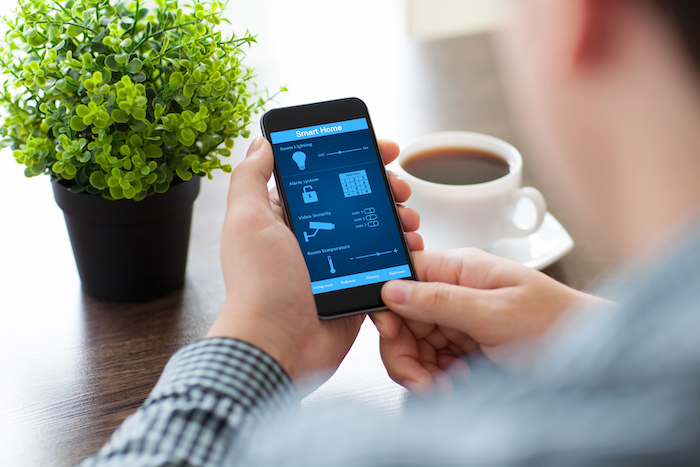
Other Security Measures and Recording Devices
In addition to smart home security devices, hosts can also consider other security measures and recording devices to protect their vacation rental properties. These measures can include traditional security systems such as alarm systems, door and window sensors, and motion detectors, as well as more advanced technologies like biometric scanners and facial recognition cameras.
Carbon Monoxide and Smoke Detectors
Smart smoke and carbon monoxide detectors can send alerts to the host’s phone if an emergency occurs, allowing them to take action quickly and keep guests safe.
Noise Monitoring Devices
Noise monitoring devices can help to protect the property by detecting any loud noises that may indicate a break-in or other disruptive behavior.
Final Thoughts
The key to installing a security camera on your vacation rental property is to make sure it can monitor only public spaces and that they are disclosed ahead of your guests checking in. Airbnb guests expect a certain level of privacy during their stay so you should only install cameras in common spaces, but try to opt for less intrusive methods like smart devices or other recording devices.
As much as your property will benefit from having the right security solution, as a property manager you can also benefit from some extra tech help. Whether you have a private room, an apartment, or multiple vacation homes, signing up for vacation rental software can make a valuable contribution in various ways.
Here are a few ways iGMS can help to reduce the workload:
- Managing multiple accounts and units on the major vacation rental platforms
- Organizing your messages and email into a single feed and using automated templates and triggered messaging to improve guest communication
- Receiving payouts and creating invoices by connecting your Stripe account to iGMS
- Changing the prices right via the system
- Tracking the productivity of your support staff




